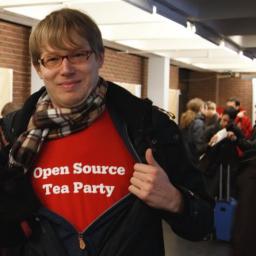
Some people have had enough, and they've organized a boycott at "
http://boycottsystemd.org" to organize efforts. From the top: "
Disclaimer: We are not sysvinit purists by any means. We do recognize the need for a new init system in the 21st century, but systemd is not it." OK, that's enough to keep me reading. They outline twelve well-thought-out reasons systemd is dangerous, and a set of ways you can get involved, including refusing to use systemd distros, moving to slackware, crux, gentoo, BSD, and more. Here's just one of them:
systemd clusters itself into PID 1. Due to it controlling lots of different components, this means that there are tons of scenarios in which it can crash and bring down the whole system. But in addition, this means that plenty of non-kernel system upgrades will now require a reboot. Enjoy your new Windows 9 Linux system! In fairness, systemd does provide a mechanism to reserialize and reexecute systemctl in real time. If this fails, of course, the system goes down. There are several ways that this can occur9. This happens to be another example of SPOF.
Interesting times. When's the last time you heard someone advocate moving immediately to Slackware or Gentoo?
 Some people have had enough, and they've organized a boycott at "http://boycottsystemd.org" to organize efforts. From the top: "Disclaimer: We are not sysvinit purists by any means. We do recognize the need for a new init system in the 21st century, but systemd is not it." OK, that's enough to keep me reading. They outline twelve well-thought-out reasons systemd is dangerous, and a set of ways you can get involved, including refusing to use systemd distros, moving to slackware, crux, gentoo, BSD, and more. Here's just one of them:
Some people have had enough, and they've organized a boycott at "http://boycottsystemd.org" to organize efforts. From the top: "Disclaimer: We are not sysvinit purists by any means. We do recognize the need for a new init system in the 21st century, but systemd is not it." OK, that's enough to keep me reading. They outline twelve well-thought-out reasons systemd is dangerous, and a set of ways you can get involved, including refusing to use systemd distros, moving to slackware, crux, gentoo, BSD, and more. Here's just one of them:
Being such an effort, it was completed a long time ago. All there is left to do is to change the interfaces (how many times iptables interface has changed?), change the internal structures, change change change, for no good reason. This is what happens when you mess with a working program just for the fun of it. You eventually break it so bad that you enter a road impossible to turn from.
The sickness has permeated into the very core of the kernel: device management. We have had tons of the same stuff which performed equally badly over 20 years. We had kudzu, then HAL, then udev, and now systemd-udev.
This "sake for the sake of change" sickness has a cause: people think that they could automate the complicated tasks of installing an operating system, installing services, modifying hardware etc. It's not gonna happen. It's the year 2014 and I'm still having troubles with my sound card. The fucking sound card! I'm not even mentioning that I'm using the third driver for my graphics card and that's not working properly either.
In order to make that impossible dream come true, they are screwing around, changing interfaces. This causes the "change for the sake of change".
Even if we can stop the systemd madness now, RedHat will find something else to "automate" and "make friendly to idiot sysadmins who can't read a fine manual". In another ten years we could be boycotting something else like "stop the networkd madness".
I really think that the whole Linux thing should be abandoned. Stop giving away code for free and decepting managers saying that it's as good as the ones real engineers (with a focus in mind) designed. Solaris could hotswap CPUs, now it's gone. Tru64 could do massive multiprocessing even back in the 90s, now also gone. All gone into the toilet bowl of "we don't need to pay that much, a clusterfuck of PCs are just as good and here is an operating system for that". Even small attempts at creating a proper desktop system was killed by the free shit. I remember QNX, but there were others too. I'm not even talking about where we could be in mobile computing if this Linux-dumping didn't happen.